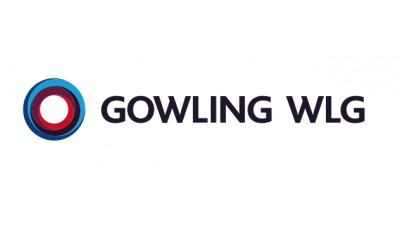Commonwealth Games 2022 Brings Housing And Transit Options To Birmingham

In December, it was announced that Birmingham would host the 2022 Commonwealth Games. The multi-sporting event, which is held every four years, features athletes from the Commonwealth of Nations and attracts visitors and spectators from across the globe.
To prepare, Birmingham has begun investing in building transit, infrastructure and housing to not only support the games, but also sustain the city's growing population.
A Focus On Supply And Demand
The second largest city in the U.K., Birmingham has seen increased demand for space from businesses and residents moving to the area. The resident count is expected to rise by 171,000 before 2039, and around 100,000 additional units will need to be built over the next two decades to support the growing population, Knight Frank reported. The city's emergence as a cultural capital and competitive housing prices when compared to London, have made it an attractive place for businesses and residents to relocate.
But Birmingham’s housing supply has not kept up with the growing demand. Between 2011 and 2016, 8,000 homes were completed, but household projection data shows demand was actually closer to 20,000.
The Commonwealth Games’ plans for new development could help drive increased housing supply in the city, particularly in northwest Birmingham. According to Birmingham 2022, 1,000 new apartments will be built as part of the Games Village, accommodating up to 6,500 people participating in the games. When the Commonwealth Games are over, this housing will become available to purchase or let. Social and affordable housing will also be available through a partnership between Birmingham Housing Trust and the In-Reach rental initiative.
This housing initiative is the first phase of a larger plan to deliver 3,000 new homes around the Perry Barr area. It will also contribute to Birmingham City Council’s development plan, which calls for the construction of new homes throughout the city to support the expected population growth of 150,000 residents by 2031.
“We have a desperate need for high-quality housing in the city and it would have been much trickier to meet that demand if we had not been successful in our bid to host the Games,” Birmingham City Council Leader Councillor Ian Ward said in a statement.
But the economic impact of the games, especially as it relates to the housing supply, will not be seen immediately.
“A major regeneration programme like this will result in some degree of local disruption in the short-term and we recognise that patience will be required, but the long-term gains will far outweigh this,” Ward said.

A Transit Transformation
In addition to more housing options, the Commonwealth Games are also driving initiatives to improve Birmingham residents’ access to transportation. There have been talks of implementing a Sprint rapid transit system for more than five years, and now the £279M project is coming to fruition.
The Sprint rapid bus system is a bus that runs on a roadway separated from main roads, minimising contact with other vehicles and avoiding traffic congestion. It had been referred to as “a tram without rails," and it provides riders with an efficient and reliable alternative to buses.
Plans for construction have now been accelerated to deliver ahead of the 2022 games.
The Walsall, Solihull and Sutton Coldfield town centre will be the first three routes to open, Birmingham Mail reported. They are also the three routes that provide access to and from the games. Several other routes will be delivered by 2026.
Other transportation plans are underway that will provide options for residents across the West Midlands and beyond to travel to Birmingham. The HS2 railway, a high-speed rail network, is being built to transport riders from London to Birmingham. It will open in 2026.
Midlands Connect is another transit initiative in the works. It is a strategy to improve city-to-city connectivity in the Midlands. The program’s goal is to support capacity for 6 million passengers per year and boost the regional economy by £649M. This infrastructure will also decrease travel times. For example, a train journey from Birmingham to Nottingham, which is currently 69 minutes, would last 50 minutes. A journey between Birmingham and Hereford, currently 84 minutes, would be only 60 minutes.
Midlands Connect also has plans to enhance major roadways and infrastructure that connects people across the Midlands. A proposed Motorway Hub, which would include widening roads and creating additional expressways, would help minimise congestion.
“Transport has a critical role to play as Britain forges a new position for itself in the world — improving our global connections, creating the skilled jobs we need to renew our infrastructure and delivering the capacity that will help our economy to grow,” Secretary of State for Transport Chris Grayling said in his forward to Midlands Connect’s “Our Routes To Growth” report. “The U.K.’s existing long-term infrastructure planning process is evolving to become more flexible and responsive with a greater focus on outcomes like growth and social mobility.”
As Birmingham counts down the days to the Commonwealth Games, the city will continue paving the way for economic growth.
This feature was produced in collaboration between Bisnow Branded Content and Gowling WLG. Bisnow news staff was not involved in the production of this content.

